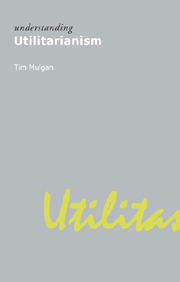Questions for discussion and revision
Summary
two Classical utilitarianism
Bentham
What is psychological hedonism? How does it differ from ethical hedonism? What role do the two play in Bentham's philosophy?
What does Bentham mean by the claim that “Prejudice apart, the game of pushpin is of equal value with the arts and sciences of music and poetry”? Why does he think this?
What does Bentham mean by “the greatest happiness of the greatest number”? Why should the legislator adopt this principle? Why does Bentham think the resulting legal system will be superior to the law of his own day?
What does Bentham mean by “natural rights”? What does he think of them? Is his view reasonable? Does Bentham mean the same thing by “rights” as we do today?
“Punishment causes pain. Pain is bad. Therefore, utilitarians cannot justify punishment.” How does Bentham escape this paradox?
What is Bentham's panopticon? What does it tell us about his philosophical approach?
Mill
What is empiricism? What role does it play in Mill's philosophical system? How does it relate to his support for utilitarianism, for liberalism, for the free market, and for democracy?
What is Mill's “proof of utilitarianism” designed to prove? Does the proof contain any hidden or controversial assumptions? Is it a successful proof?
Why does Mill need to make a distinction between higher and lower pleasures? What role does the “competent judge” play in his argument? ...
- Type
- Chapter
- Information
- Understanding Utilitarianism , pp. 179 - 186Publisher: Acumen PublishingPrint publication year: 2007



